-
Standard Delivery
Choose Standard Delivery option during checkout
5-6 Days
-
Express Delivery
Choose Express Delivery option during checkout
4-5 Days
 Dona (प्रसाद दोना)
Dona (प्रसाद दोना)[google-translator]
lass=”a-spacing-small po-item_weight”>
=”yoast-text-mark”>
</tr><tr class=”a-spacing-small po-flavor”></tr>class=”a-spacing-small po-number_of_items”>>1
<td class=”a-span3″>Package Information</span></td></span></span></td>class=”yoast-text-mark”>class=”a-span9″><span class=”a-size-base po-break-word”>Bagass=”a-span3″><span class=”a-size-base a-text-bold”>Number of Items</span>
100.0 gram</span>
class=”a-spacing-small po-item_form”><td>lass=”yoast-text-mark”>ss=”a-span9″><span class=”yoast-text-mark”>ass=”a-size-base po-break-word”>100 Grams
| Brand | Veganic | ||
| ><span class=”a-size-base a-text-bold”>Item Form</span></td> | s=”yoast-text-mark”>s=”a-size-base po-break-word”>Crystal | </td> | |
| Diet Type</span> | lass=”a-size-base po-break-word”>Vegetarian | ||
| <span class=”a-size-base a-text-bold”>>Item Weight</span></td> | |||
| <span class=”a-size-base a-text-bold”>Item Package Quantity</span></td> | |||
| Speciality | Chemical Free, Vegan |
Hurry and get discounts on all Pujan Samagri Items
Promo1
₹ 140.00 Original price was: ₹ 140.00.₹ 69.00Current price is: ₹ 69.00.
Choose Standard Delivery option during checkout
5-6 Days
Choose Express Delivery option during checkout
4-5 Days
Payment Methods:
| Weight | 100 g |
|---|---|
| Dimensions | 10 × 5 × 3 cm |
Mishri, also known as rock sugar or sugar candy, holds a special place in Hindu traditions. Its crystalline form, sweet taste, and pure origins make it an essential offering during poojas, festivals, and auspicious occasions. Experience the blessings and positive energy that mishri brings to your spiritual practices.
Mishri is a naturally crystallized form of sugar, obtained by slowly evaporating sugarcane juice. Unlike processed white sugar, it retains subtle flavors and trace minerals, adding a unique depth to its sweetness. Mishri symbolizes purity, clarity, and auspicious beginnings.
In Hindu traditions, prasadam is a sacred food offering made to deities during pooja (worship) rituals. Mishri, or rock sugar, holds a special place as a prasadam due to its symbolic meanings and spiritual associations.
Sweetness of Divine Grace: The inherent sweetness of mishri represents the blessings and divine grace that devotees hope to receive from the gods. Partaking of this sweet prasadam is believed to bring a taste of that divine sweetness into the devotee’s life.
Purity and Devotion: Mishri’s clear, crystalline form signifies the purity of heart, intention, and devotion that should accompany spiritual practices. Offering this pure substance mirrors the desire of the devotee to offer themselves in a transparent and honest way.
Harmonious Energy: In many spiritual beliefs, mishri is thought to attract positive vibrations, dispel negative energies, and create a favorable atmosphere for spiritual connection. Its role in purifying the environment is essential during pooja.
Prosperity and Abundance: Beyond its spiritual connotations, mishri also embodies a wish for a life full of sweetness, happiness, and abundance. It symbolizes the hope that life will be filled with blessings and richness, not only in a spiritual sense but also in a material sense.
While mishri has deep roots in Hinduism, the concept of sacred food offerings and their symbolism exists in various faiths and cultures around the world. The use of sweetness to symbolize blessings, purity, and wished-for abundance shows the human inclination to connect taste, ritual, and spiritual aspirations.
Elevate your poojas and sacred practices with our exceptional quality. Feel the sweetness of devotion and attract auspicious blessings into your life.
You must be logged in to post a review.
In stock
In stock
In stock
In stock
In stock
In stock
 Dona (प्रसाद हेतु दोना)
Dona (प्रसाद हेतु दोना)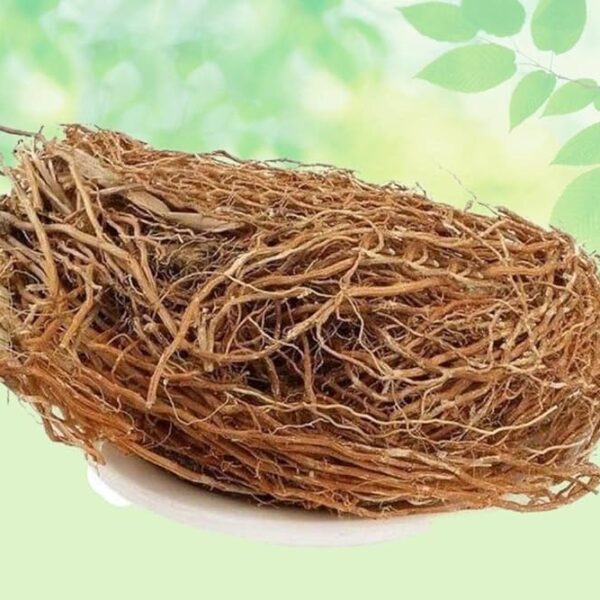 Khas Root- Khus Jad - Ushira - Vetiver Roots - Vetiveria Zizanioides - Ramacham, 50 Grams
Khas Root- Khus Jad - Ushira - Vetiver Roots - Vetiveria Zizanioides - Ramacham, 50 Grams
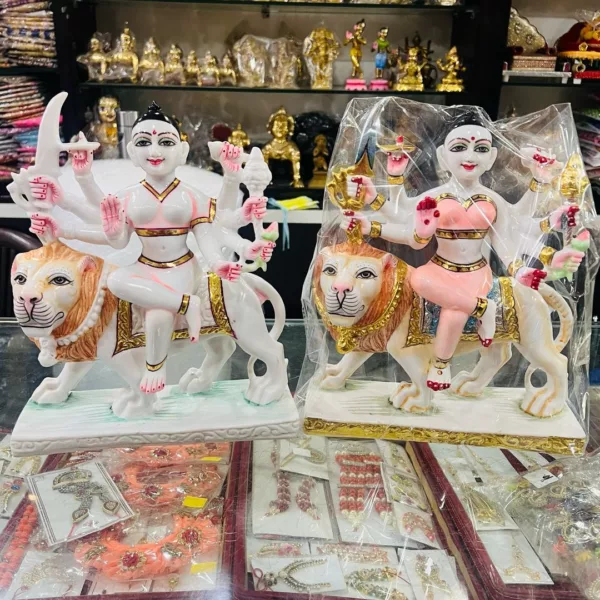 Durga Maa Murti - Marble Dust - 12 Inches
₹ 9,999.00 – ₹ 11,499.00
Durga Maa Murti - Marble Dust - 12 Inches
₹ 9,999.00 – ₹ 11,499.00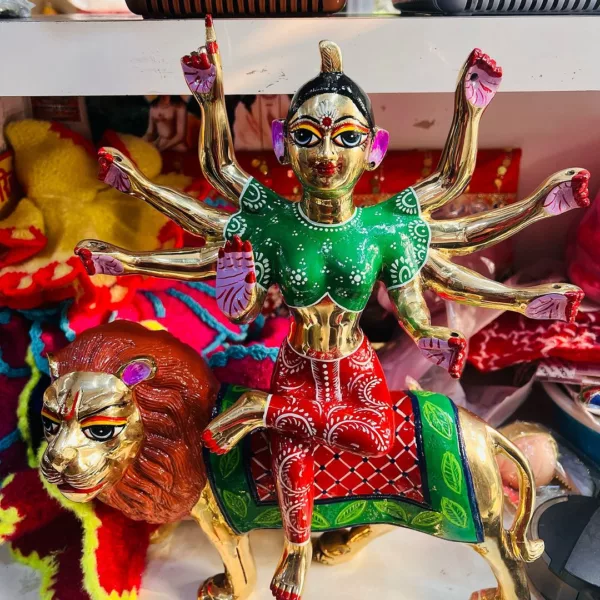 Durga Mata Murti - Fully Decorated - 15 Inches
Durga Mata Murti - Fully Decorated - 15 Inches
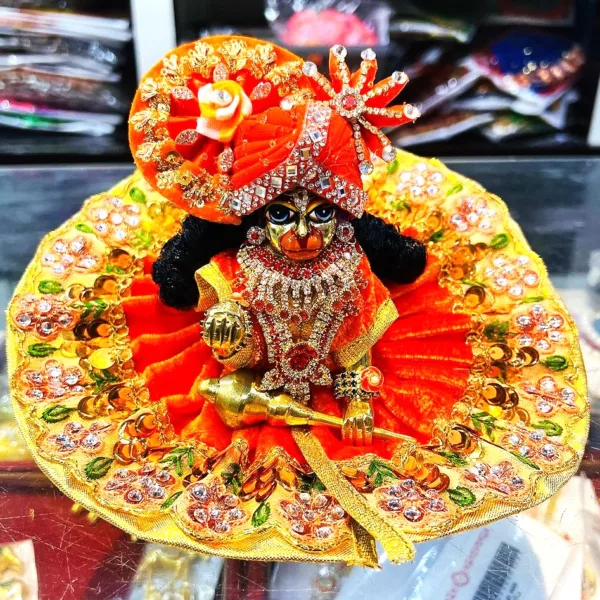 Bal Hanuman Murti - 4 No. - Full Ready
Bal Hanuman Murti - 4 No. - Full Ready
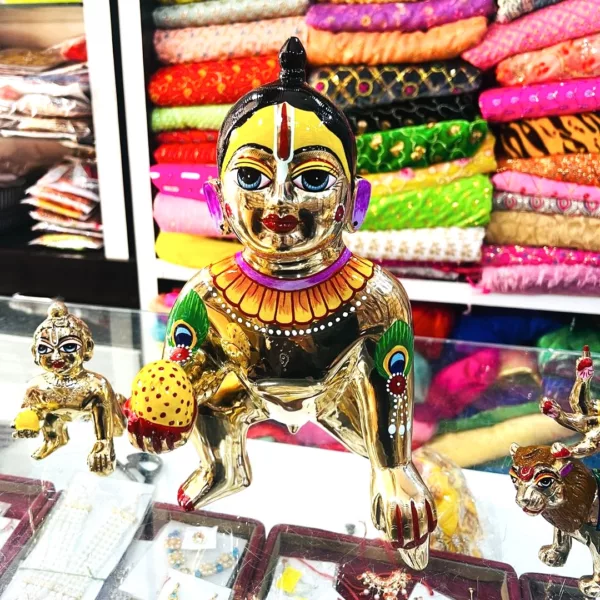 Laddu Gopal Ji - 16 No.
Laddu Gopal Ji - 16 No.
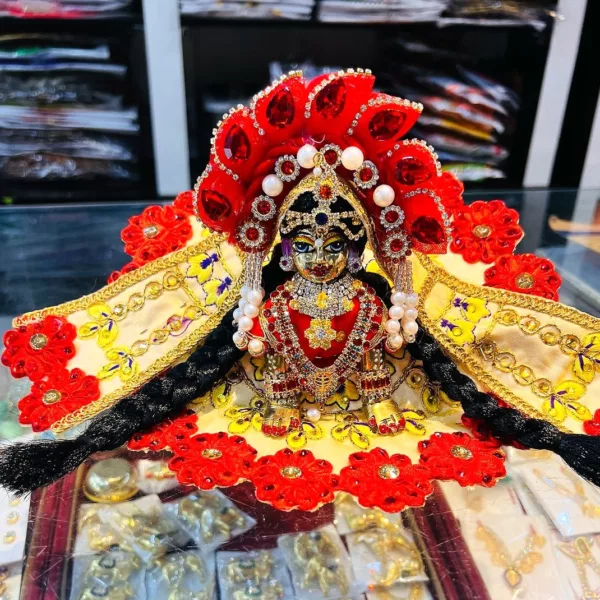 Radha Rani Sarkar Murti- 4 No. - Full Ready
Radha Rani Sarkar Murti- 4 No. - Full Ready
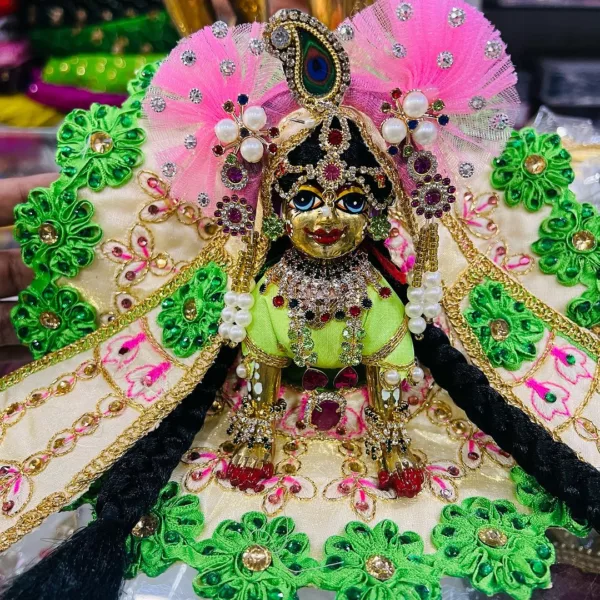 Radha Rani Sarkar Murti- 6 No. - Full Ready
Radha Rani Sarkar Murti- 6 No. - Full Ready
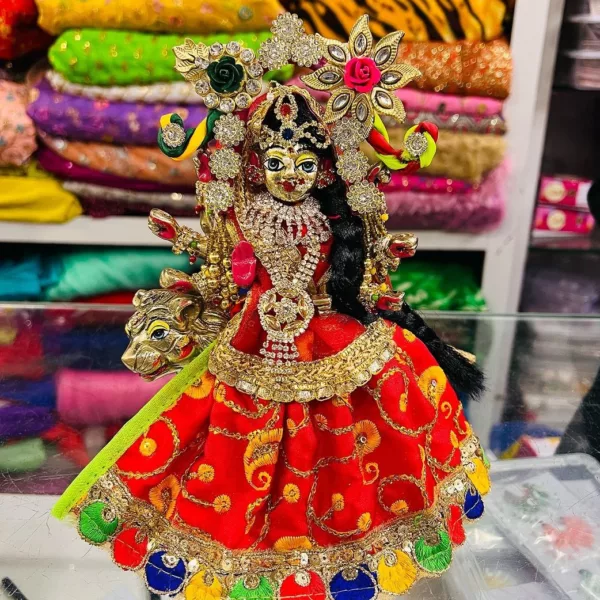 Brass Durga Maa Murti - 8 Inches - | Dressed | Gift-Ready [2024]
Brass Durga Maa Murti - 8 Inches - | Dressed | Gift-Ready [2024]
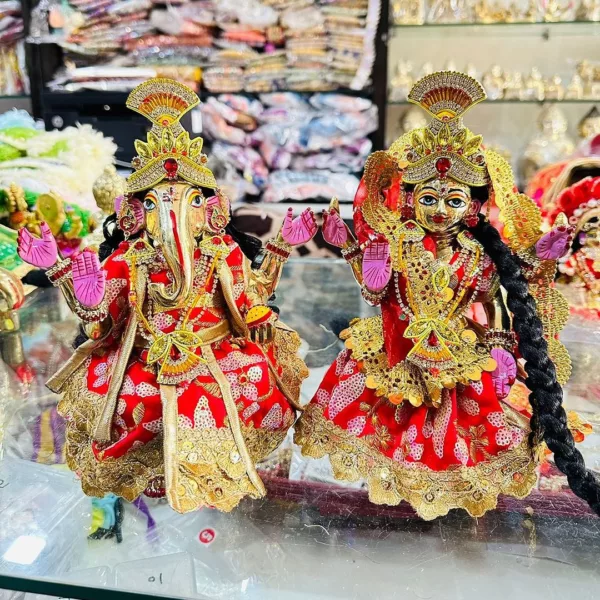 Laxmi Ganesh Ji Murti - Made of Pure Brass- 9 Inches
Laxmi Ganesh Ji Murti - Made of Pure Brass- 9 Inches
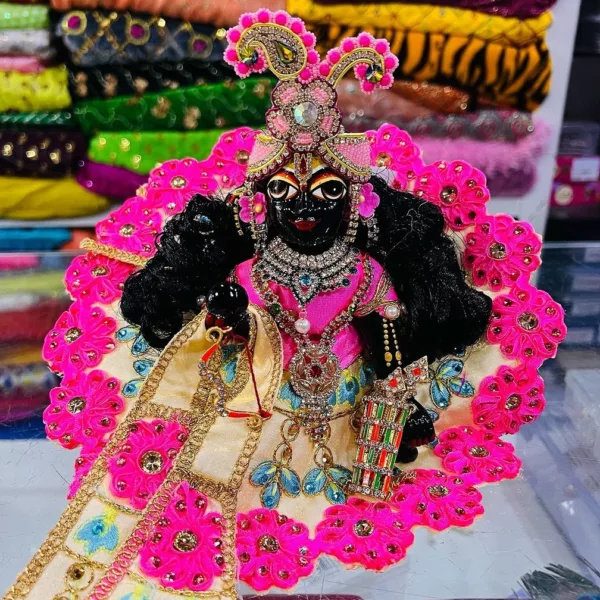 Ram Lala Murti - Bal Roop- 6 Inches - Full Ready
Ram Lala Murti - Bal Roop- 6 Inches - Full Ready
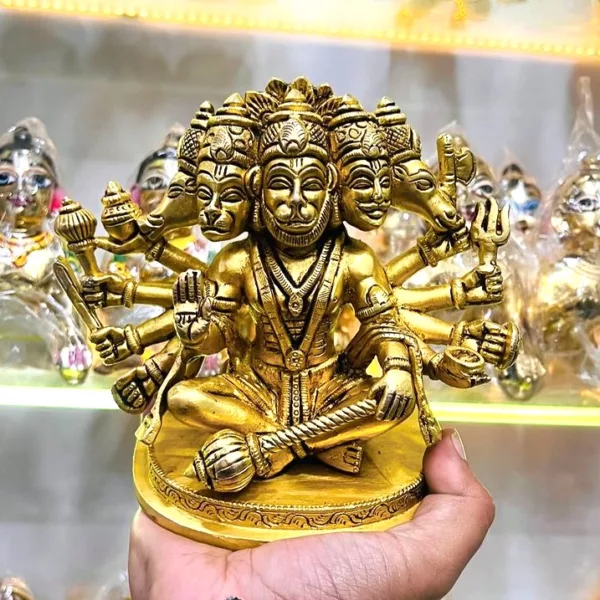 Panchmukhi Hanuman Murti
₹ 1,499.00 – ₹ 6,999.00
Panchmukhi Hanuman Murti
₹ 1,499.00 – ₹ 6,999.00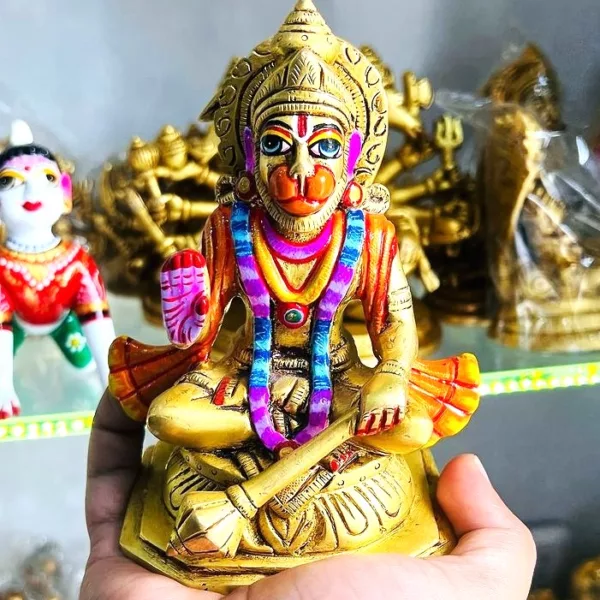 Hanuman ji vigrah - 5.5 Inches - Made of Brass
Hanuman ji vigrah - 5.5 Inches - Made of Brass
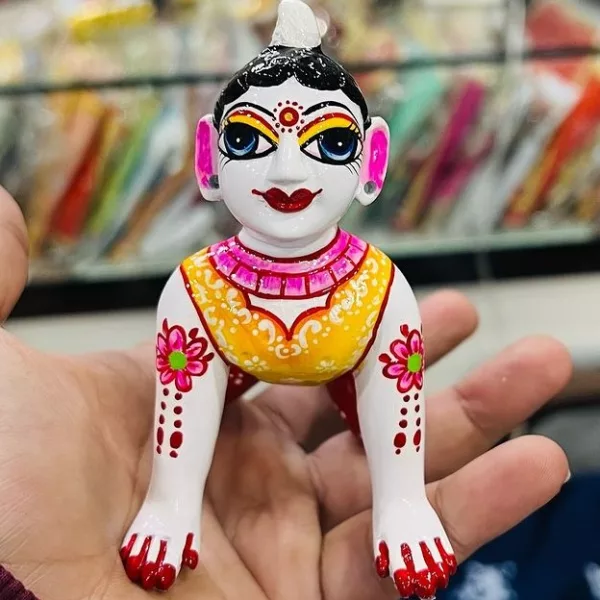 Radha Rani Sarkar Decorated- Made of Pure Brass - 4 no [2024]
Radha Rani Sarkar Decorated- Made of Pure Brass - 4 no [2024]
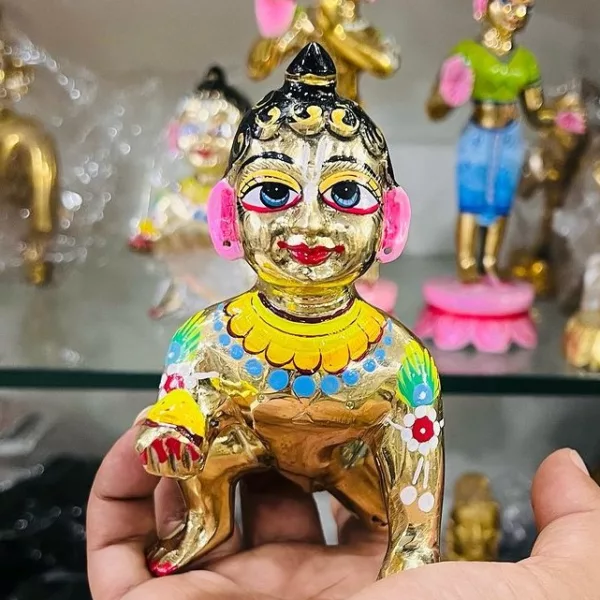 Laddoo Gopal Murti- Made of Pure Brass - 6 No.
Laddoo Gopal Murti- Made of Pure Brass - 6 No.
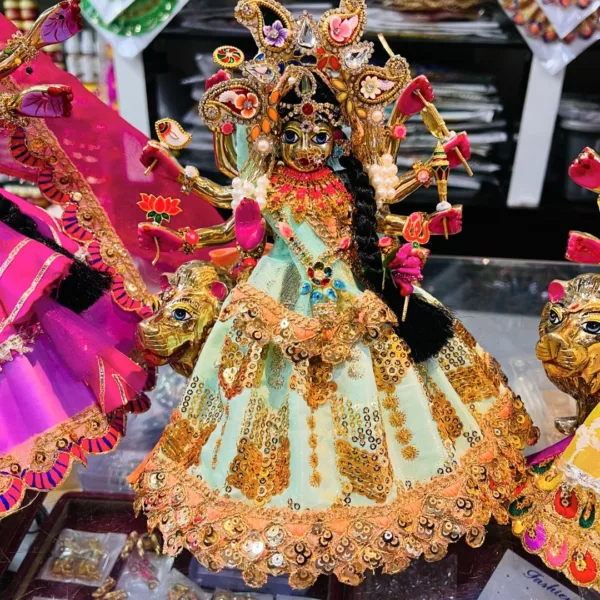 Brass Durga Maa Murti - 8 Inches - | Dressed | Gift-Ready [2024]
₹ 5,999.00 – ₹ 6,999.00
Brass Durga Maa Murti - 8 Inches - | Dressed | Gift-Ready [2024]
₹ 5,999.00 – ₹ 6,999.00About Us
Pujagoodies.com is a curated spiritual commerce marketplace offering a wide range of products and devotional content for devotees. Our platform aims to be a one-stop shop for all spiritual needs, including clothing, utensils, handicrafts, puja samagri, and more. We are committed to providing a seamless shopping experience, fostering trust and authenticity in the spiritual goods industry.
No account yet?
Create an Account
Reviews
There are no reviews yet